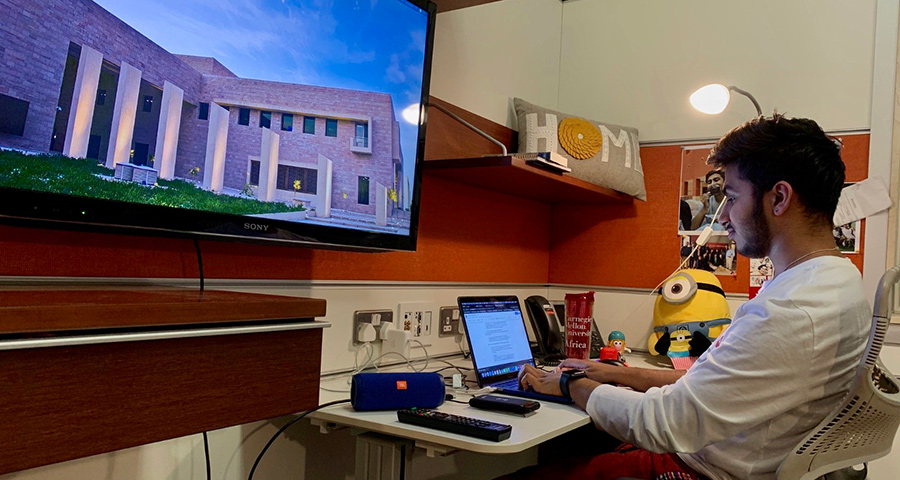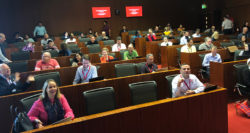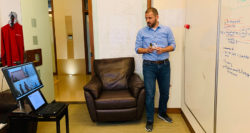
CMU-Q creates open mini-course on remote teaching
At the end of February, the CMU-Q leadership sensed that Qatar would be suspending universities to prevent the spread of COVID-19. While it was an unprecedented move, public health officials were clear that this was an essential step in slowing the spread of the novel coronavirus.
“Qatar Foundation was extraordinarily supportive, and they told all of the partner universities beforehand that we might have to move to an online mode,” said Michael Trick, dean of Carnegie Mellon University in Qatar. He and Selma Limam Mansar, senior associate dean for education, formed a task force to guide the shift of about 125 courses to remote teaching.
Understanding the faculty’s needs
The task force, comprised of staff experts in information technology, educational initiatives and academic support, first turned to the faculty members to better understand what they would need to move online.
Nasser Alaeddine, director of education and media technologies, closely reviewed the feedback from faculty: “We gathered a lot of very useful information, and we learned that the biggest hurdle would be their knowledge of how to use the tools. Not everyone knew how to use Canvas or Zoom.”
The task force realized that training the faculty, staff and students to use the tools was the highest priority. They opted for a limited set of available tools—Zoom, Canvas, PowerPoint and Virtual Qatar—so everyone would be working with the same platforms.
They also realized that while in-person training would be important at the beginning, the faculty and students would need resources to refer to when they were at home. Online tutorials would be critical support for the community.

The CMU-Q faculty and academic support staff learn the tools for remote teaching during the two-day transition period.
A bank of tutorial videos
The team created a set of video modules on topics like delivering remote exams, mapping of teaching activities, managing attendance, interacting with students, holding office hours, and recording lectures.
Chief information officer Khalid Warraich noted that the modules were created specifically for the CMU-Q community’s needs. “We looked at all the activities that our professors do to teach, and that our students do to learn, and we tried to map it with technology that would get the job done.”
The plan in motion
On the afternoon of Monday, March 9, CMU-Q received word that the Qatar government was suspending schools and universities. The team immediately opened up the online training modules for the students. The next day, an in-person session was set up for the faculty members to learn the modules in the mini-course.
When classes resumed online two days later, the team provided essential technological support and troubleshooting. On that first day, Alaeddine systematically noted, “we made sure to visit everyone before their classes to make sure we could answer their questions right away. I think that first day was a big success.”
Warraich said that with the move online, “the entire IT department is now a virtual helpdesk. We need everyone to help support the technological needs of our community.”
Academic support was likewise essential. The teaching assistants and educational support staff at CMU-Q’s Academic Resource Center were also trained so they could support both faculty and students as the semester resumed.

Christos Kapoutsis, associate teaching professor of computer science, teaches remotely in the days after the move online.
Adapting the way to teach
As the faculty members become settled into the online mode, Hope Rodefer, director for educational initiatives, is noticing they are adapting the way they teach. “Some people have left Qatar and are now in different time zones, and the faculty is adapting. Initially, they wanted to continue with scheduled, synchronous lectures. Now they are recording some lectures so students can access them, and replay them as they need to.”
Moving forward, Alaeddine believes the faculty members can now explore various teaching methods using technology. “Now people know what the technology can do more than before. I hope they will be encouraged to learn more about the tools and adapt these tools to improve learning outcomes.”
